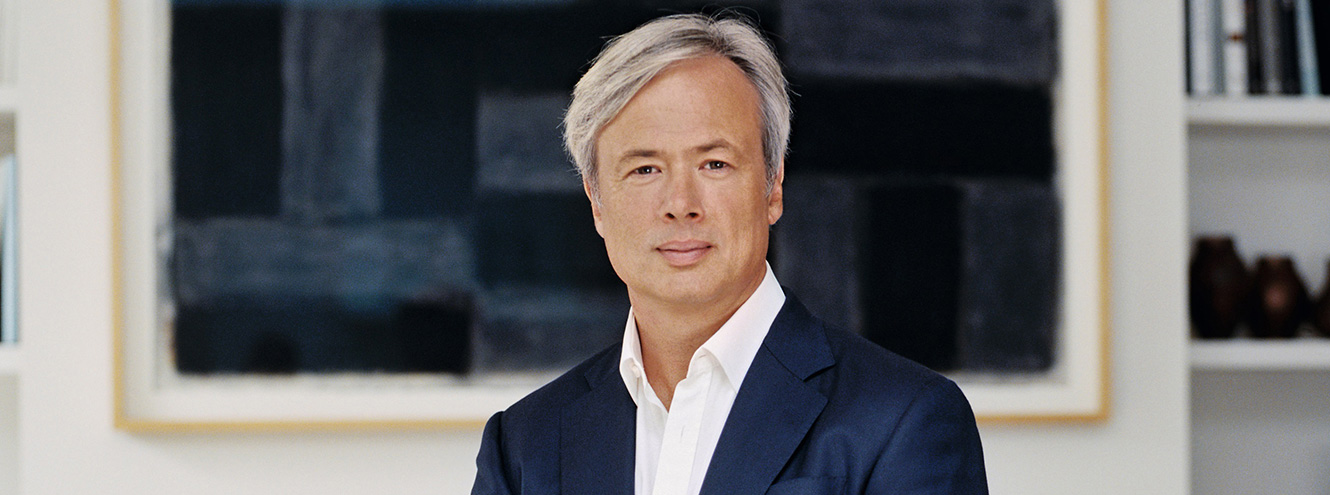 BBC News
BBC NewsBorrowing was £17.4bn last month, the second highest October figure since monthly records began in 1993.

Nick Wheeler
I was born in Ludlow in 1965, and my mother died when I was five. So my little brother was five years younger than me. I also had a brother who was five years older than me, and a sister seven years older than me. Though I was one of four, it was almost like being an only child.
My father threw himself into his work when my mother died so I was pretty independent. From an early age, I’d do what I wanted. My father would drop me at school in the morning, and then I’d get the bus back. I think there’s a high correlation between people who lost a parent early on and those who become entrepreneurs: it’s self-reliance and self-belief. You just have to get on with it.
I always hated being told what to do which wasn’t great at school. One of my claims to fame is that I managed to get through the whole of Eton without calling anyone sir – that was a pretty good effort in the 1970s. In those days, you had to be subservient. That probably made me quite obnoxious but it did make me independent.
I always knew I wanted to have my own business. My father was a bit of a closet entrepreneur. He did engineering at university and then went to work for a consultancy group called TI Consulting. He moved to Shropshire because his grandmother died and left him a house. He was about 32. Ludlow is a lovely place but not the place where you’re going to forge a great career or an entrepreneurial opportunity.
He got a job there working in an agricultural machinery business called FW McConnell. It must have been 1963, and about six months after he got the job the man who owned the business got gored by a bull and killed, so my father was made managing director. He grew the business and did a management buyout of another division of the company that owned that business. He owned most of the shares and off he went. He reversed it into a shell company. After the stock market crisis in 1987 the share price never recovered.
I used to go to the business every Saturday morning and open the post with him. I’d also pack stuff on the factory floor and do funny little jobs. Every so often there’d be a cheque in the post and he’d get so excited and we’d do a little dance together around the desk. It was like magic: they’d bring in cheap steel and turn it into hedge cutters. You got paid more for the hedge-cutter than you did for the steel.
There’s a similar alchemy with shirts. I like doing things I understand: I’d not be a good Bill Gates or a Larry Page, dealing in algorithms. It isn’t tangible enough for me. It had to be physical – like a piece of agricultural machinery or a shirt.
The world is so well set up; there is such a networking of funding opportunities and support. It’s a perfectly normal and acceptable thing to be an entrepreneur today. When my father was growing up nobody started their own businesses.
I started Charles Tyrwhitt in 1986 and before that I had other businesses. I did a photography business, a Christmas tree business and a shoe business. I was trying to make money doing something I loved. 36 years on and that ethos is still very important. It’s making people feel good, and producing clothes which are great quality, and which people enjoy buying and wearing.
A business is a living entity. For me, I want the customers, the workers and the suppliers to love the business.
Fashion remains in the family. My daughter bought herself a sewing machine, and she taught herself pattern-cutting and sells them on Depop. In the early days of Charles Tyrwhitt, my wife, Chrissie Rucker, who founded The White Company, used to offer advice. It was great being in the same sort of industry but a different market.
I’m a non-exec of the White Company – she doesn’t really have time to take a similar role with Charles Tyrwhitt. She gives me a hard time and says our clothing is too formal – and she’s probably right. Actually, we’ve begun to make our clothing less formal in the last few years.
Nick Wheeler is the founder of Charles Tyrwhitt